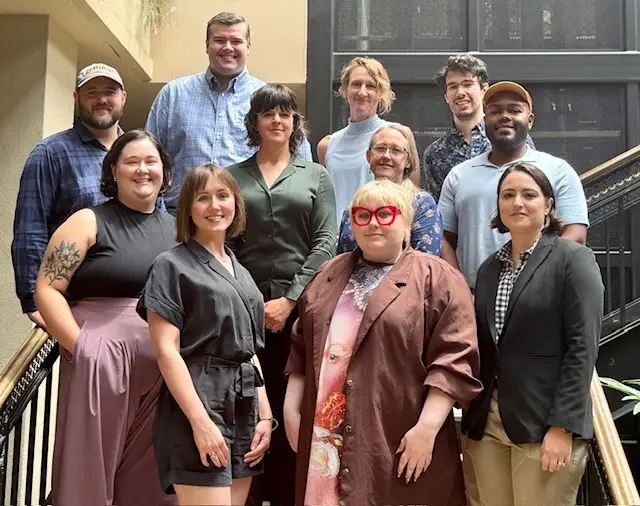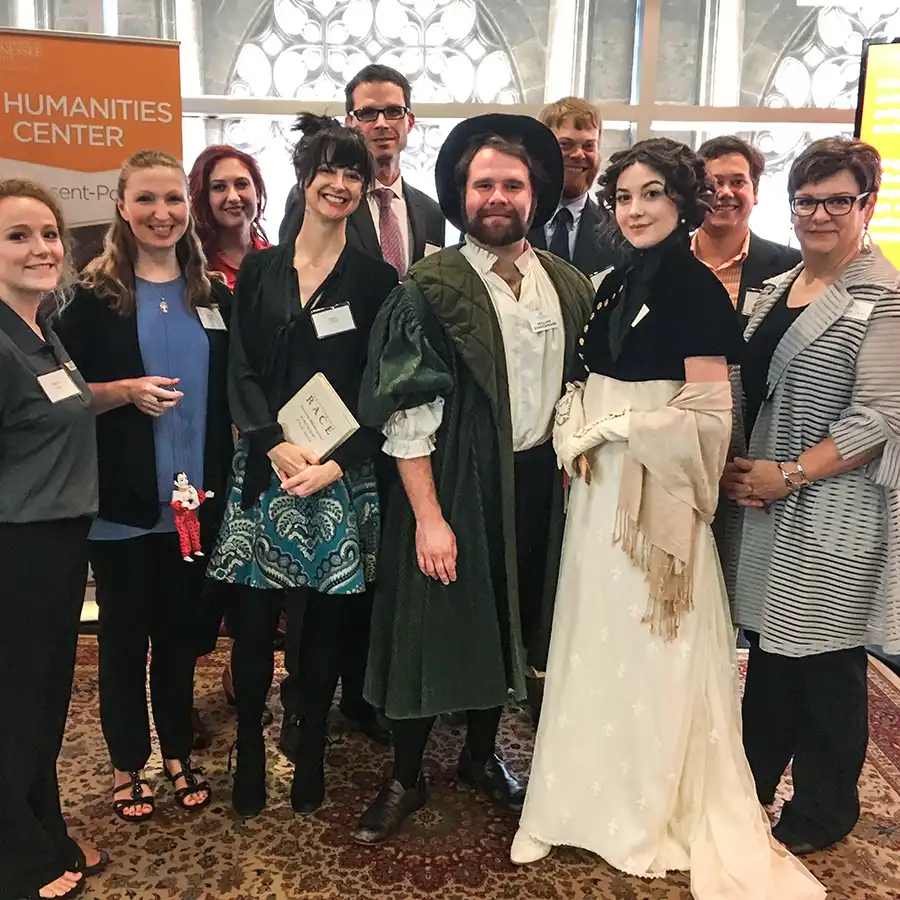
The Fellowship Program at the Denbo Center
With the support of the UT Chancellor’s Office, the Office of Research and Engagement, our affiliated arts and humanities departments, and the College of Arts and Sciences, the Denbo Center supports the creation of groundbreaking humanities research through our fellowship programs. Learn more and apply below.
Our fellowships are now open to UT faculty and graduate students working on research projects with humanistic methods and outcomes, as defined by the NEH:
“According to NEH’s enabling legislation, “the term ‘humanities’ includes, but is not limited to, the study and interpretation of the following: language, both modern and classical; linguistics; literature; history; jurisprudence; philosophy; archaeology; comparative religion; ethics; the history, criticism and theory of the arts; those aspects of social sciences which have humanistic content and employ humanistic methods; and the study and application of the humanities to the human environment with particular attention to reflecting our diverse heritage, traditions, and history and to the relevance of the humanities to the current conditions of national life.”
Currently, we offer six faculty and four graduate-student full-year residencies, and also offer full-year residencies to the Marco Institute’s Haslam Dissertation fellow and to UT faculty who have won national humanities fellowships such as the ACLS or NEH fellowships.
Faculty Fellowships
Denbo Center offers faculty fellowships to affiliated humanities departments at UT to enable faculty to finish long-term research undertakings such as books and digital projects. A DCHA Fellowship is a full-year research release while in residency at the Denbo Center. Residency includes participating in the life of the Center by working daily in the office space provided at the DCHA, presenting work in progress, and engaging with other fellows and with visiting scholars in once-weekly Chandler Seminars
Graduate Student Fellowships
The Denbo Center offers four Graduate Student Research Fellowships to PhD students in its nine affiliated departments who are past comprehensive exams and writing their dissertations. A DCHA Fellowship is a full-year research release from teaching and service while in residency at the Center. Residency includes research space at the Center, access to our library liaison and to designated travel funds, publicly presenting research at Chandler Seminars, and engaging with distinguished visiting scholars.
Application links and fellowship details are located in the accordion boxes above.
* If your department faculty’s research addresses key humanities issues and you wish the department to become a supporter of the DCHA and participate in this fellowship program, contact us at humanitiesctr@utk.edu.

“The humanities are the main course of life, the essential core of meaning in the world, where our values and our best selves are defined.”
—Amy J. Elias, UT Humanities Center Director
UT ranks tenth in the country among all universities, public and private, in the number of NEH fellowships received between 2004 and 2022.
Graduate students chosen to spend a year in the UTHC working on their dissertations graduate, on average, 1.5 years sooner, publish their first book sooner, and receive better job offers than other students in the humanities.
Faculty who spend a year at the University of Tennessee win NEH and other awards and publish award-winning books and research projects more quickly.